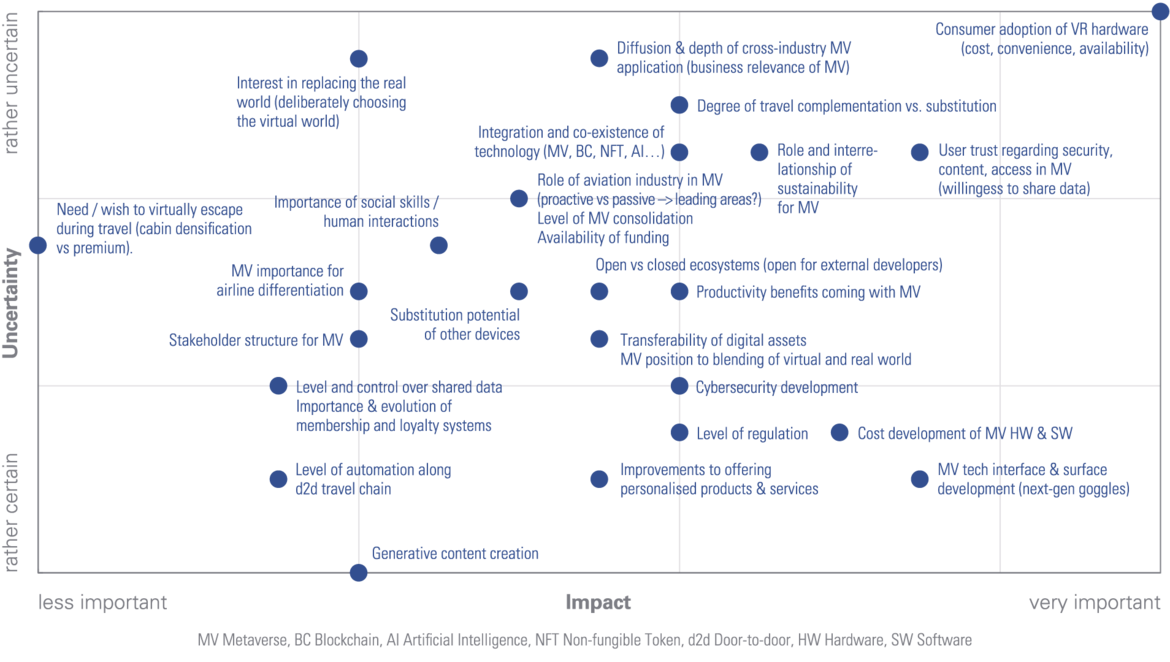The metaverse shows potential to transform how travel is perceived, planned and undertaken and how the mobility industry operates and engages with customers. Experts from Airbus, Lufthansa Innovation Hub and Bauhaus Luftfahrt applied a scenario approach to illuminate prevailing uncertainties about future trajectories, identifying key drivers and exploring their interrelations with plausible outcomes for metaverse applications in commercial aviation.

Our scenario matrix encompasses four distinct scenarios, each defined by varying levels of customer adoption and consolidation. The consolidation of the metaverse ecosystem might vary between a unified metaverse infrastructure versus a fragmented set of platforms with limited interoperability. High adoption rates coupled with high consolidation present one potential path, where the metaverse seamlessly integrates into the aviation landscape, creating a cohesive and efficient ecosystem. Conversely, scenarios involving low adoption and low consolidation depict a slower uptake, with the metaverse playing a more peripheral role in the industry.
While monitoring the progress of the metaverse is deemed essential, industrial applications, for instance collaborative, virtual product development, staff training or improving passenger inflight experience, are only a few examples where the industry might anticipate efficiency gains from the metaverse. It is essential to note that the transition is expected to be evolutionary rather than disruptive. The substitution impact on (corporate) travel within the specific timeline until 2035 appears relatively low. However, the outcome is contingent upon the quality of experience and the pressure for sustainability and cost-effectiveness, especially looking beyond 2035.
Uncertainty impact analysis of factors driving the future of metaverse
27 factors ranging from economics, politics, regulations, technology, airline and airports, passengers and society were identified. Factors with high possible impact on the travel and aviation industry, and with a high degree of uncertainty regarding future evolution, were selected to form the basis for future metaverse scenarios.
Four possible futures of metaverse (MV) within aviation
1) “The Golden Islands” as niche application catering to the high-value luxury traveller segment;
2) “B2B(2C) Verse Lifts Off” where aviation alliance uses MV as collaboration infrastructure;
3) “The Mainstream Multiverses” where immersion is mainstream and aviation is a fast-follower and
4) “The Bet is Won” where MV becomes key for product and branding in aviation.


